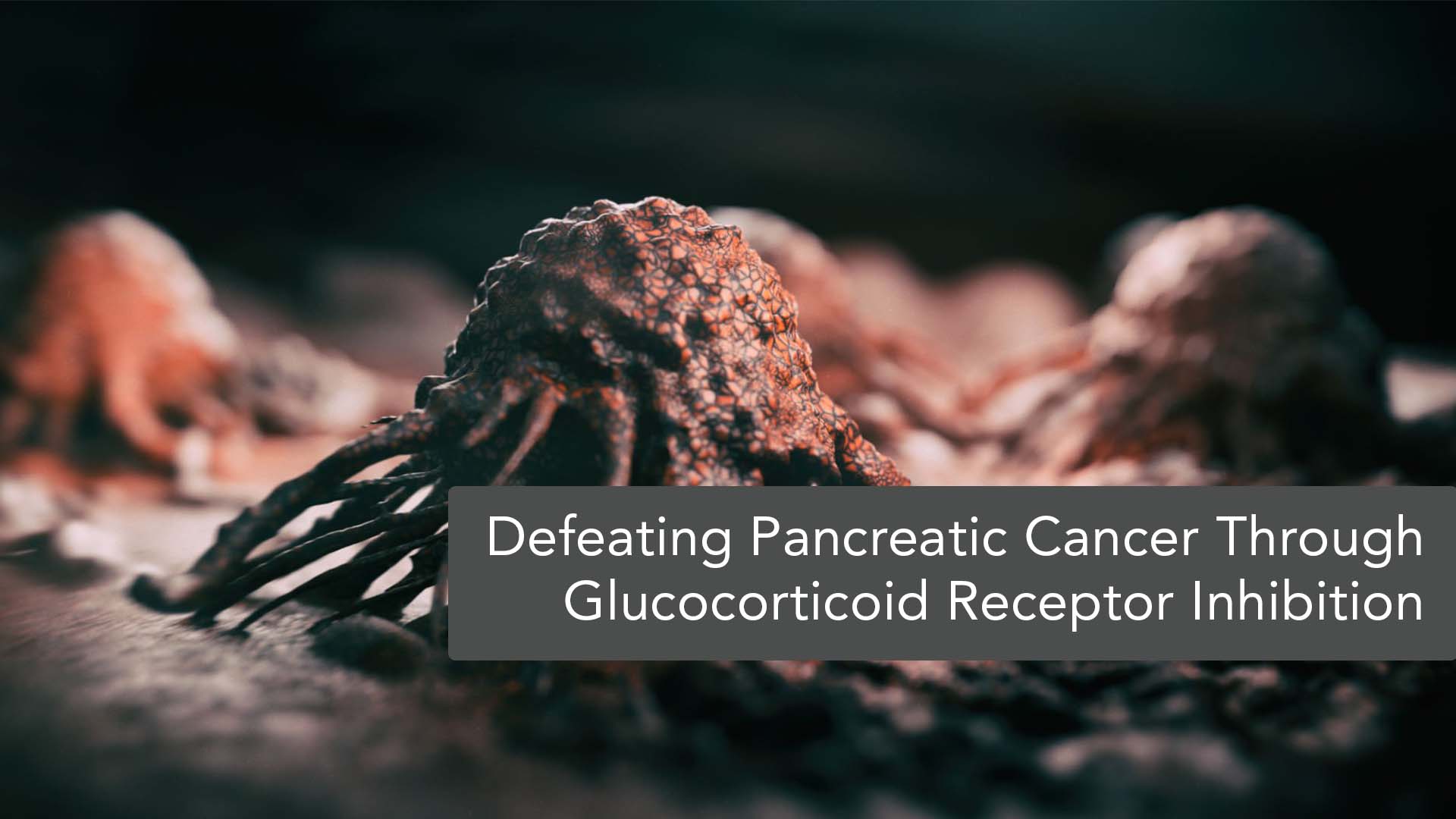Inhibition of Glucocorticoid Receptor for Enhanced Anti-Tumor Immunity Against Pancreatic Cancer

The Novelty
In an international collaboration with the Department of Experimental Radiation Oncology from The University of Texas MD Anderson Cancer Center (USA), this study discovers that glucocorticoid receptor (GR) is a promising target for overcoming pancreatic cancer. Based on animal trials, GR inhibition results in downregulation of programmed death-ligand 1 (PD-L1) and upregulation of major histocompatibility complex class I (MHC-I) in tumor cells. These effects then improve both anti-tumor immunity and response to immune checkpoint blockade (ICB) therapy. Consistent outcomes are also observed in patients with pancreatic ductal adenocarcinoma (PDAC). Meanwhile, clinical GR antagonist mifepristone is able to produce similar results although its anti-tumor effect is not as profound as that of GR inhibition. Nonetheless, the efficacy of the combined therapy of GR inhibition and mifepristone is worth to be tested clinically. In order to move towards materialization, future studies should focus on several scopes including: to determine whether targeting GR sensitizes pancreatic cancer to chemotherapies through immune regulation, to investigate the outcome of applying the same therapy on other types of cancer, and to optimize the dosage of GR antagonist mifepristone so as to enhance its efficacy with minimum toxicity.
The Background
To date, an effective treatment for pancreatic cancer has yet to be developed. Although chemotherapy and radiotherapy are the common therapies being used to treat patients of pancreatic cancer, they are very likely to cause severe deterioration in patients. Furthermore, major driver genes for pancreatic cancer (e.g. KRAS, TP53, CDKN2A, and SMAD4) have not been approved by FDA to be applied as clinical therapies yet. Despite showing positive effects on other cancer types, immune checkpoint blockade (ICB) therapies were not effective for pancreatic cancer, regardless of whether being applied alone or combined with other therapies (i.e. chemotherapy, radiotherapy, targeted therapy, and vaccination). Glucocorticoid receptor (GR) is the receptor to which cortisol and other glucocorticoids bind. The GR is expressed in almost every cell in the body and regulates genes controlling the development, metabolism, and immune response. Since the anti-tumor potential of GR has been demonstrated in past research, this study examines how GR can be part of the strategy to overcome pancreatic cancer. The output of this study show that GR inhibition is effective in treating pancreatic cancer and a feasible therapy can be derived based on that.
The SDG Impact
Pancreatic cancer is projected to become the second leading cause of cancer-related death by 2030. Pancreatic ductal adenocarcinoma (PDAC) patients in the United States show a 5-year survival rate of as low as 6%. These alarming figures imply the urgent need for more effective therapies. As there is a huge room of improvement for the existing therapies of pancreatic cancer, the findings of this study are essential for the development of relevant therapies. By identifying GR as a target, this research contributes to the realization of breakthrough strategies to treat PDAC patients (UNSDG 3: Good Health & Well-being).
